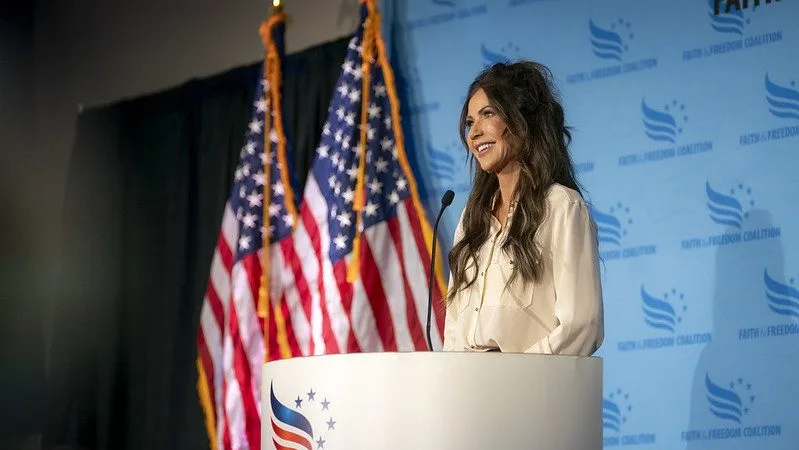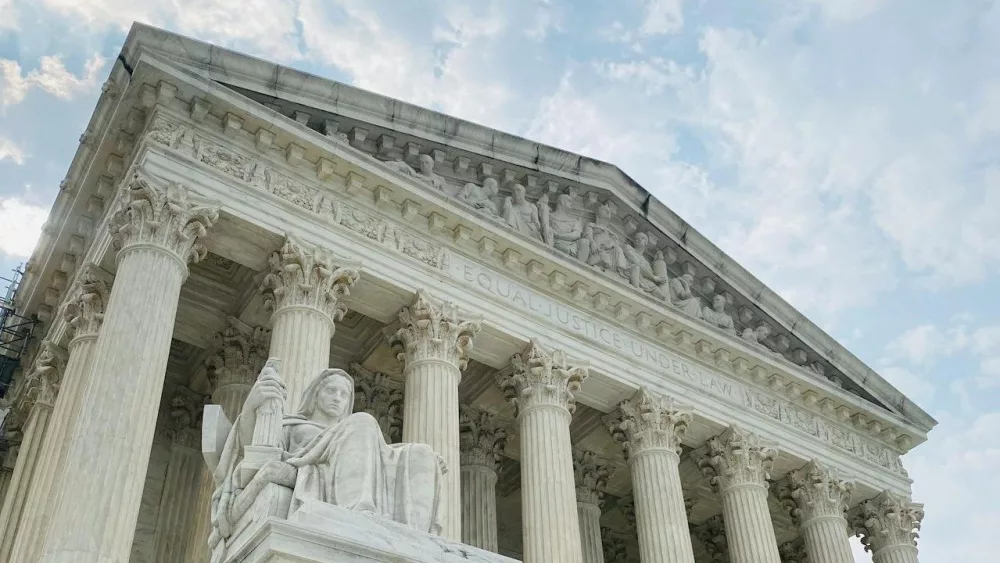WASHINGTON, D.C. – An estimated 1.4 million immigrants who are in the country legally but are not citizens stand to lose their government-subsidized health care coverage under the sweeping tax and spending bill President Donald Trump signed into law this summer, according to estimates from the nonpartisan Congressional Budget Office.
The One Big Beautiful Bill Act cuts federal spending on Medicaid, the joint federal-state health insurance program for low-income people. It also places new eligibility restrictions on lawfully present immigrants, including refugees and asylees, who are enrolled in a variety of government-subsidized health programs: Medicaid, the Children’s Health Insurance Program (CHIP), Medicare and Affordable Care Act marketplaces.
Immigrants who are in the country illegally have long been ineligible for federally funded health coverage.
But seven states — California, Colorado, Illinois, Minnesota, New York, Oregon and Washington — plus the District of Columbia have extended state-funded coverage to some income-eligible noncitizen adults regardless of their immigration status. Fourteen states plus the district provide state-funded coverage to noncitizen children whether they are here legally or not.
The new restrictions in the One Big Beautiful Bill Act, combined with other Trump policies limiting public benefits for immigrants, put those states in a financial bind. With less federal money to provide health benefits to immigrants who are here legally, states will be hard-pressed to maintain their programs that offer coverage to all immigrants, regardless of their legal status.
Health care would be slashed even for immigrants with legal status under massive Senate bill
“We’re taking a giant step backwards from that public health and preventive health measure by excluding more people and draining federal resources from states that need it,” said Tanya Broder, a senior counsel specializing in immigrant health policy at the National Immigration Law Center, an advocacy group.
“And the result will be that our health — individually, as families and as communities — will be in jeopardy, and the health care infrastructure that serves all of us will also be compromised,” Broder said.
Already, some states that had offered health coverage aid to all immigrants — regardless of status — have been pulling back.
To help close a $12 billion deficit, California Democratic Gov. Gavin Newsom in June signed a state budget that bars immigrants who are here illegally from enrolling in the state’s Medicaid program, known as Medi-Cal. Current enrollees between the ages of 19 and 59 will have to pay a new $30 monthly premium beginning in 2027. In July 2026, the state will eliminate dental care for noncitizens.
Illinois in July ended its state-funded health coverage program for all immigrants ages 42 to 64. The state still operates a state-funded plan for residents 65 and older regardless of immigration status, but enrollment has been paused. And Minnesota also plans to exclude adult immigrants who are here illegally from a program that used to provide coverage regardless of immigration status.
New York is in an especially tough spot, since its state constitution prohibits discrimination against lawfully present immigrants in providing public benefits.
We’re taking a giant step backwards from that public health and preventive health measure by excluding more people and draining federal resources from states that need it.
– Tanya Broder, National Immigration Law Center
“States have had some type of leeway to fund resources for migrant communities if they want to,” said Medha Makhlouf, a law professor and the founding director of the Medical-Legal Partnership Clinic at Penn State Dickinson Law who studies immigrants’ access to health care. “But now this [federal] law makes it difficult for them to do that.”
Making it less attractive to stay
Jessica Vaughan, director of policy studies at the Center for Immigration Studies, a nonprofit group that backs stricter immigration policies, said these efforts are part of both Trump’s larger anti-immigration stance and “Congress’ interest in getting rid of any incentive or benefit for people who are in the country illegally.”
“It’s a way of making it less attractive for people to stay here illegally, right?” Vaughan said. “They’re trying to give people reasons to leave rather than reasons to stay.”
As noncitizens who are here legally lose access to federally funded benefits, the demand for state-funded coverage is “likely to increase,” Drishti Pillai, director of immigrant health policy at KFF, a health policy research group, told Stateline.
“However, at the same time, states are facing increasing budget pressures, especially with the Medicaid cuts,” Pillai said. “So it’s almost a double whammy, where there will likely be increased demand for state-funded coverage programs, but also states will have fewer resources to cover people.”
Makhlouf said the Trump administration’s policy changes reflect a broader strategy of stripping public benefits from marginalized and poor communities.
‘Big Beautiful Bill’ dings states that offer health care to some immigrants here legally
“Everyone who cares about access to health care needs to pay attention to what’s happening to immigrants,” she said. “When it becomes normalized to be able to sacrifice certain people’s humanity or their vulnerability, or to minimize their contributions to society, and say, ‘You don’t deserve access to health care,’ then that can be turned on to any group.”
Under Trump’s domestic policy law, California expects to lose at least $28.4 billion in federal Medicaid funding, according to Newsom’s office.
On the California Senate floor June 27, Democratic state Sen. María Elena Durazo expressed her sorrow at the state’s decision to deny coverage to immigrants.
“I can’t express how much joy I felt when we expanded basic health care,” Durazo said. “Today, that joy that I was so happy about, that joy has turned into pain, that joy has turned into shame.”
Democratic Senate Pro Tem Mike McGuire, however, said the state had little choice.
“We are a state of immigrants, 10.6 million strong. And we will never turn our backs on those who are part of the heart of the largest economy in the United States of America,” McGuire said during the debate. “So we’ve had to make some tough decisions. I know we’re not going to please everyone.”
Obligated in New York
One state, New York, is particularly in a bind, because its constitution requires it to provide coverage to lawfully present noncitizens.
Roxana, 27, has been living in the U.S. under the Deferred Action for Childhood Arrivals program, known as DACA, since she was 8 years old and is using her first name only out of fear she will be targeted. At the end of 2019, she experienced a range of debilitating symptoms, including pelvic pain and chronic fatigue, and discovered a noncancerous lump on her breast.
“Chronic illness has impacted my career trajectory with a lot of fatigue and chronic pain,” said Roxana, who lives in the Bronx, New York.
Roxana cannot get federally funded Medicaid. But she qualified for state-funded public health coverage in New York. A 2001 court case, Aliessa v. Novello, requires the state to offer publicly funded health coverage to all lawfully present residents under the state constitution. So, she could afford to go to the doctor, where she learned that she had a hormonal condition called polycystic ovary syndrome, or PCOS, and she was able to get the lump removed.
Most refugees and asylees will be denied food stamps under Trump’s new law
New York mostly picked up the tab for immigrants and other lawfully residing immigrants until 2016, when it launched coverage it called the Essential Plan under the 2010 Affordable Care Act, also known as Obamacare. Under the ACA, the plan has no deductibles or monthly premiums for patients, and the federal government has picked up almost the entire cost — 90% — of the plan, a huge economic relief for the state.
Now, New York faces an annual loss of $13.5 billion in federal Medicaid and Affordable Care Act funds. Additionally, the phasing out of premium tax credits for noncitizens under Trump’s law would lead to a loss of $7.5 billion in annual funding to the state’s Essential Plan, which covers 1.7 million New Yorkers.
“These are billions of dollars that are being taken away and out of New York’s delivery system,” Amir Bassiri, director of Medicaid at the New York State Department of Health, said at a United Hospital Fund conference on July 30.
It’s unclear whether and how the state will afford to cover people like Roxana, even though it’s required under the state’s constitution. Like other immigrants, she is terrified that in the face of cuts and shrinking safety net access for noncitizens, she will lose continuous health care coverage and that her condition will get worse.
“My PCOS symptoms have just been getting worse over the years. I really want to try my best with the health access that I have to get it under control.”
Stateline reporter Shalina Chatlani can be reached at schatlani@stateline.org.
Stateline is part of States Newsroom, a nonprofit news network supported by grants and a coalition of donors as a 501c(3) public charity. Stateline maintains editorial independence. Contact Editor Scott S. Greenberger for questions: info@stateline.org.





